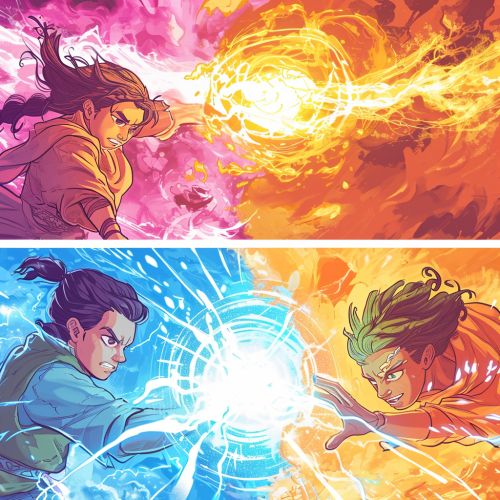Webcomics
Overview
Webcomics, also known as online comics or internet comics, are comics published primarily on the internet. Unlike their traditional print counterparts, webcomics offer a wide range of genres, styles, and themes due to the limitless possibilities of the digital medium. They are a significant aspect of the digital art world and have gained substantial popularity in the 21st century.


History
The history of webcomics is as diverse and dynamic as the medium itself. The first known webcomic, "Witches and Stitches," was published on CompuServe in 1985, marking the beginning of a new era for comics. The advent of the World Wide Web in the 1990s led to an explosion of webcomics, with creators taking advantage of the new platform to reach a global audience. Early webcomics like "Doctor Fun," "NetBoy," and "Where the Buffalo Roam" paved the way for the diverse array of webcomics seen today.
Genres and Themes
Webcomics encompass a wide array of genres and themes, from fantasy and science fiction to romance, horror, and slice-of-life stories. The freedom of the digital medium allows creators to experiment with unconventional narratives and artistic styles, leading to the creation of unique and innovative works. Some webcomics, such as "Questionable Content" and "xkcd," have gained significant followings due to their unique blend of humor, commentary, and relatable characters.
Artistic Styles
The artistic styles seen in webcomics are as varied as the stories they tell. Some creators choose to emulate the style of traditional print comics, while others experiment with digital techniques to create unique visual experiences. The use of color in webcomics is particularly notable, as the digital medium allows for a wider range of hues and effects than traditional print comics. Additionally, some webcomics incorporate animation and interactivity, further distinguishing them from their print counterparts.
Monetization
Monetization is a significant aspect of webcomics, as it allows creators to earn a living from their work. Many webcomic creators rely on a combination of advertising revenue, merchandise sales, and crowdfunding platforms like Patreon to support their work. Some webcomics are also published in print or as e-books, providing additional revenue streams for creators.
Impact and Influence
Webcomics have had a significant impact on the broader comic industry, challenging traditional notions of what comics can be and who can create them. They have also played a crucial role in promoting diversity in comics, with many webcomics featuring characters and stories that are underrepresented in traditional print comics. Additionally, webcomics have influenced the development of digital art and storytelling techniques, contributing to the evolution of the medium.
